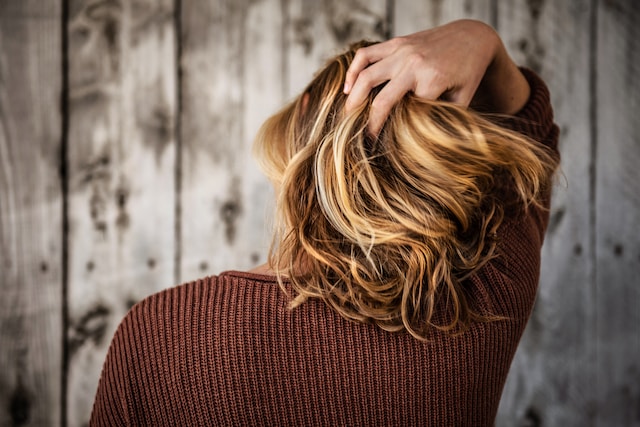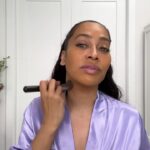Healthy hair isn’t just vanity; it often reflects how we feel inside. Good hair days boost our self-confidence and influence how the world sees us. Conversely, issues such as slow hair growth or even hair loss can be cause for concern, significantly affecting our self-esteem. So while you’re wondering how to stop hair loss, you might be wondering: Can what’s on your plate affect what’s on your head? Does nutrition indeed influence hair growth and hair loss? Let’s dive in.
Understanding hair growth
Let’s start by understanding how our hair grows. The cycle consists of three phases: anagen, catagen and telogen. During the anagen phase, your hair is actively growing. Next comes the catagen phase, a transition period during which growth slows down. Finally, in the telogen phase, the hair rests and eventually falls out, creating new strands. Several elements can disrupt this cycle, compromising your hair loss prevention game.
Genetics is often in charge and determines whether you have a luscious mane or a receding hairline. Your age can delay the cycle, and hormonal imbalances can completely disrupt it. Considering all these factors, you may wonder if diet can play another important role in maintaining hair health.
The role of nutrients in hair health
Eating well can be a game-changer for your locks. Believe it or not, those protein-packed leafy greens and legumes can be your first step in stopping hair loss. What exactly should you eat? Let’s break it down.
- Protein – Consider these your hair’s best friends; they are building blocks.
- Vitamins – These multitaskers work on everything from promoting growth to preventing hair loss.
- Minerals – These are like the gatekeepers of your scalp and keep everything balanced and strong.
- Omega-3 fatty acids – Their anti-inflammatory properties can potentially stimulate new hair growth.
A well-balanced diet rich in these nutrients can be your secret weapon against hair loss. It may not be an instant solution, but it is a sustainable way to give your hair the nourishment it craves. So, here’s how to stop hair loss ASAP!
Impact of protein intake
When it comes to hair health, protein is more important than just a trendy term: it’s an essential component. The base of your hair consists mainly of keratin, a type of protein. Inadequate protein intake in your diet can lead to fragile and weak hair and potentially hinder its growth period. It’s where amino acids come into play. Amino acids are the basic building blocks of proteins and play a crucial role in shaping the structure of healthy hair.
If you’re wondering where you can get these substantial protein benefits, focus on exceptional food choices like eggs, fish, high-quality meats and plant-based alternatives like lentils, chickpeas and quinoa. These nutritional powerhouses support your body’s well-being and provide your hair with the essential building materials needed to promote resilient and rapid growth.
Vitamins and minerals: nourish your hair
You can think of vitamins and minerals as your hair’s internal beauty crew. Vitamin A for hair growth is crucial because it helps with sebum production and hydrates your scalp. If you’ve ever dealt with a dry, itchy scalp, you know how important this is.
B vitamins play a role by stimulating blood circulation to the scalp and nourishing the hair follicles. Don’t underestimate vitamin D; While it’s usually related to bone health, it can affect the hair follicle cycle, which could be an unsung hero in hair loss prevention.
Iron and zinc play a role as the backbone supporters of your scalp health. They prevent hair loss and ensure a balanced and healthy scalp. They are like the unsung heroes who ensure that the entire operation runs smoothly. A diet lacking these essential vitamins and minerals can harm hair health. Replenishing it through food or supplements could be your ticket to luscious, bouncy locks.
Antioxidants and omega-3 fatty acids
You may be familiar with antioxidants, especially in the context of their association with anti-aging or supporting immune health. However, these remarkably powerful compounds also play a substantial role in improving hair health. Antioxidants abundant in foods like berries, nuts and green tea actively wage war against oxidative stress and the flames of inflammation.
Its relevance to your hair is of utmost importance as oxidative stress has the potential to cause damage to hair follicles, which correlates with the dire problem of hair loss. Shifting our focus to the inflammation domain, an exploration of omega-3 fatty acids beckons. These illustriously presented fatty acids have earned a reputation for their impressive anti-inflammatory properties. Inflammation is a subtle yet destructive force when it comes to hair loss.
Omega-3 fatty acids reduce inflammation and promote a healthier scalp, providing a hospitable environment for new hair growth. If you’re struggling with hair loss, these nutrients could be part of the solution. Incorporating more foods rich in antioxidants and omega-3 into your diet can give you a natural way to fight back.
Hydration and hair health
We often forget that hydration not only quenches our thirst, but is also vital for the well-being of our hair. Proper hydration ensures that our cells function optimally, including the cells responsible for hair growth and scalp health. Lack of water can have a domino effect, leading to a dry, flaky scalp and turning luscious locks into brittle strands. So if you’re wondering whether diet affects hair growth, don’t overlook the simplest yet most essential nutrient: water.
If you suffer from dry, dull hair, increasing your water intake should be your first step. When we are well hydrated, it shows in the shine, elasticity and overall appearance of our hair. Even the best hair products can’t do much without enough water. So grab that water bottle and prioritize hydration – it could be the missing link in your hair care regimen.
Hair loss: the impact of unhealthy diets
Indulging in processed foods, sugars, and unhealthy fats may be satisfying, but it can have long-term consequences for your hair health. Such foods often lack essential nutrients, contributing to deficiencies that can stunt hair growth and even lead to hair loss. For example, consuming too much sugar can lead to inflammation, a number one enemy of luscious locks. So if you’re wondering which foods make your hair grow, remember that it’s often more about what you shouldn’t eat.
Practical tips for promoting hair growth through diet
Are you looking for a quick and nutritious solution? Consider drinking some green juice for hair growth. It’s packed with essential nutrients and is easy to incorporate into your daily routine.
- Eat more protein – Choose lean meat, fish and plant-based alternatives such as lentils.
- Go green – Leafy vegetables are rich in iron and other essential minerals.
- Snack smart – Nuts and seeds contain beneficial fats and are rich in antioxidants.
Maintaining a balanced diet can be your secret to healthy, vibrant hair. Small changes can make a big difference, so start implementing these tips today. Now you know what is important for your body and hair growth, so don’t repeat the old mistakes!
Wrapping up: the link between diet and hair growth
What have we learned about nutrition and hair growth? It turns out that what you eat can have a major impact on the health and appearance of your hair. From the proteins that serve as the building blocks of hair to the vitamins and minerals that nourish and protect to the crucial role of hydration, every nutrient contributes to fuller, stronger locks. While looking for quick fixes is tempting, a balanced diet can be the most effective and lasting solution for maintaining a healthy mane. So make conscious choices; remember: your hair is what you eat!





